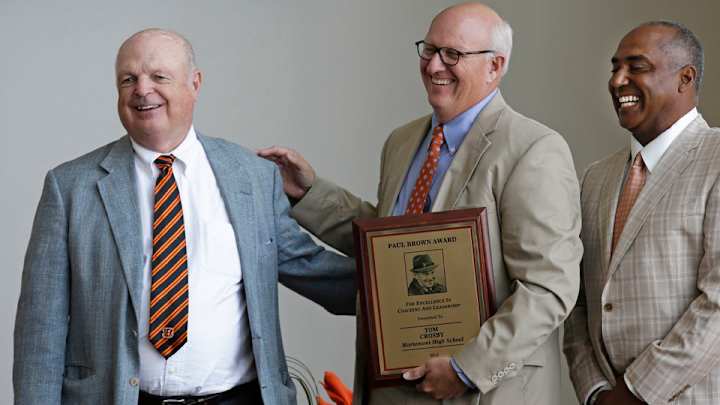Cincinnati was only NFL team to vote against blackout repeal

Cincinnati was the only NFL team to vote against repealing the current television blackout rule Monday. But it's objection to the repeal had nothing to do with its stance on game broadcasts, according to a report in the Cincinnati Enquirer.
Bengals president Mike Brown, who views eliminating blackouts as an undeniable evolution of the game according to the report, opposed the vote as held because of a little-known revenue-sharing provision.
An amendment added to Monday's legislation stipulated home teams must split 85% of stadium ticket revenue between themselves and their opponent regardless of whether 85% of tickets are sold.
More, from the report.
The basics of the club's problem are that historically, all revenue from ticket sales have been shared by two-thirds for the home team and one-third for the visitors. That will still be in place here. However, a new addition connected to this vote requires the revenue shared with the road team be no lower than 85 percent of stadium capacity.
So, if a team only sold out 80 percent of the stadium, it would still have to share an 85 percent number with the visitors and essentially purchase five percent of the empty seats.
Ideally, this won't become an issue for a club that hasn't had a blackout since Nov. 25, 2012. That doesn't change the team's view of this as a slight against small-market teams like the Bengals.
"This is the first time, I believe, that this has ever happened, that there's a selling floor," said Bengals vice president Troy Blackburn. "We just said if you want to suspend the blackout rule, suspend it, just apply the normal ticket sharing rules then go on. It ends up being essentially a tax on the smaller markets. Is that a good thing?"
• FCC repeals sports television blackout rule
Brown maintained there was no reason to tie the revenue-sharing agreement to the blackout vote, the report said.
"They are apples and oranges," Brown said. "If you just had the blackout rule standing alone, we would have voted to lift it."
There is concern amongst league officials, however, that the lack of a blackout threat could hurt attendance even further, the report said.
Last season, Cincinnati had the NFL's 22nd highest average attendance percentage at 92.1%, according to ESPN.
Television blackouts are designed to promote in-person attendance at NFL games.
Last year, the Federal Communications Commission repealed a 1975 rule that allowed broadcast networks to black games out if stadium attendance was not at capacity.
- Will Green
